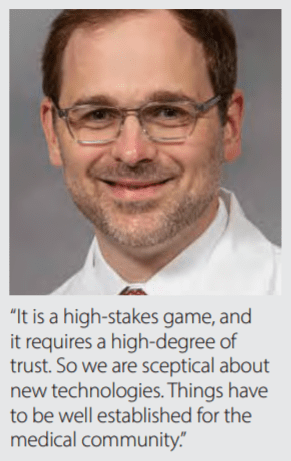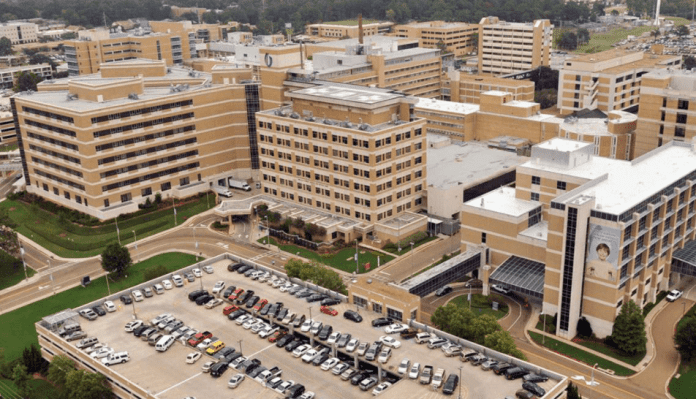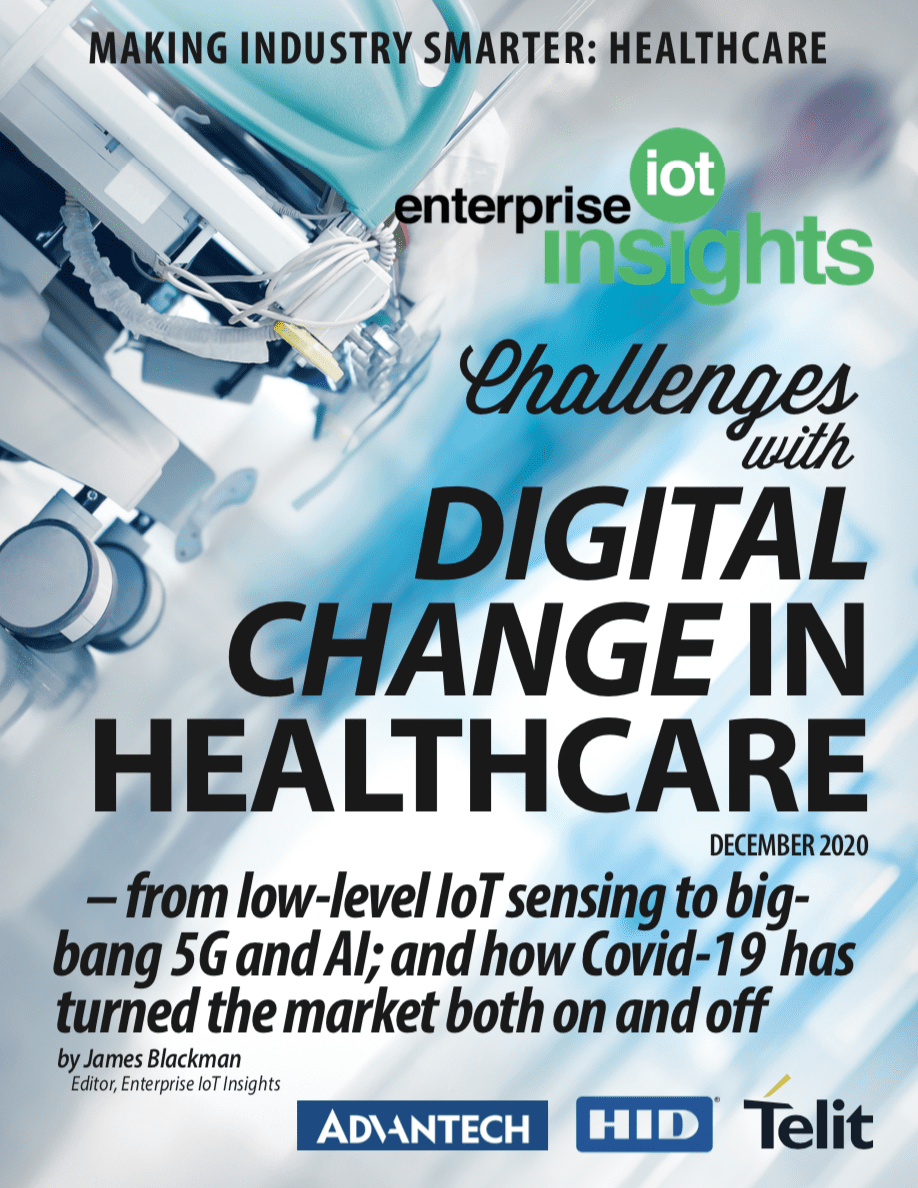Note, this article is taken from a new editorial report on the state of digital change in the healthcare sector (see image below). The report – Challenges with Digital Change in Healthcare – from low-level IoT sensing to big-bang 5G and AI, and how Covid-19 has turned the market both on and off – can be found here.
Brandon Lennep is an advanced heart failure and transplant cardiologist at the University of Mississippi Medical Center (UMMC) – and a friend of a friend. Here, he gives an unvarnished view of digital tech on the frontline in hospitals. And guess what; he is cautious, like the sector, but sees the potential and notices the difference, already.
Are you conscious, on the front line, of all the technology around you?
“No, I don’t go from patient to patient thinking about IoT. Having said that, and mine is a fairly-specific medical subspecialty, there are a lot of remote monitoring capabilities on the various pumps and pressure sensor implants, and defibrillators and pacemakers we use. So within that context, technology and particularly connectivity technology is pretty pertinent to my day-to-day life.”
 Has Covid-19 accelerated the need or demand for some of these IoT technologies – such as for tracking equipment or people?
Has Covid-19 accelerated the need or demand for some of these IoT technologies – such as for tracking equipment or people?
“I am not in hospital admin, or resources management. I am just showing up and going about my day. But I can certainly believe this crisis has accelerated the need for those kinds of technologies, as we are having to work harder to distribute and control things.
“As far as tracking of equipment, I can recall an incident where a patient in the operating room needed a backup pump, which we hadn’t planned. The shift manager was able to log-in and locate the pump we needed – because there is some sensor tracking in the hospital, and she could see it right away. So this stuff is here and it works, and it saves us bother.”
Is UMMC using new tech for access control and proximity tracing post-Covid?
“The number of access points has been reduced, and staffed with personnel checking temperatures and mask rules, and doing symptom questionnaires and administering hand sanitizer. But it is quite manual. The idea of thermal temperature cameras seems interesting, but we have not implemented that sort of stuff, at this point at least.”
What do you make of the hype around 5G-enabled surgery and AI-driven cures for disease? Is it just hype, or do you feel like it is tangible?
“Somewhere between the two. It is not something we think much about on the ground. There is a slower adoption, I would say, among healthcare providers. And some of that is conceptual or philosophical. Because we really want to trust these technologies. It is a high-stakes game, sometimes, and it requires a high-degree of trust. So we are sceptical about new technologies. Things have to be well established for the medical community to take forward.
“The role of machine learning in scan interpretation is interesting. But it has to be a diagnostic aid, as opposed to a tool. A more simplified example would be with analysis of EKG readings – which might be considered basic compared to CT scans. But we have software that gives a basic analysis of the tracing, and we have to be careful we don’t let the computer interpret the lines outside of clinical context.”
Do you have a more general view about the role of technology in your sector?
“For me, managing congestive heart failure, the idea technology can help with remote monitoring of patients is exciting. Because it presents an opportunity to improve their wellbeing by reducing hospitalizations, and concurrently to decrease healthcare costs.
“So home monitoring systems – which continue to improve – are a very good thing. The idea that in 15 years, or less even, I can press a button on a smartphone and get a readout of all of these parameters, which patients currently have to come into hospital to provide is very powerful.”
Note, this article is taken from a new editorial report on the state of digital change in the healthcare sector (see image below). The report – Challenges with Digital Change in Healthcare – from low-level IoT sensing to big-bang 5G and AI, and how Covid-19 has turned the market both on and off – can be found here.


